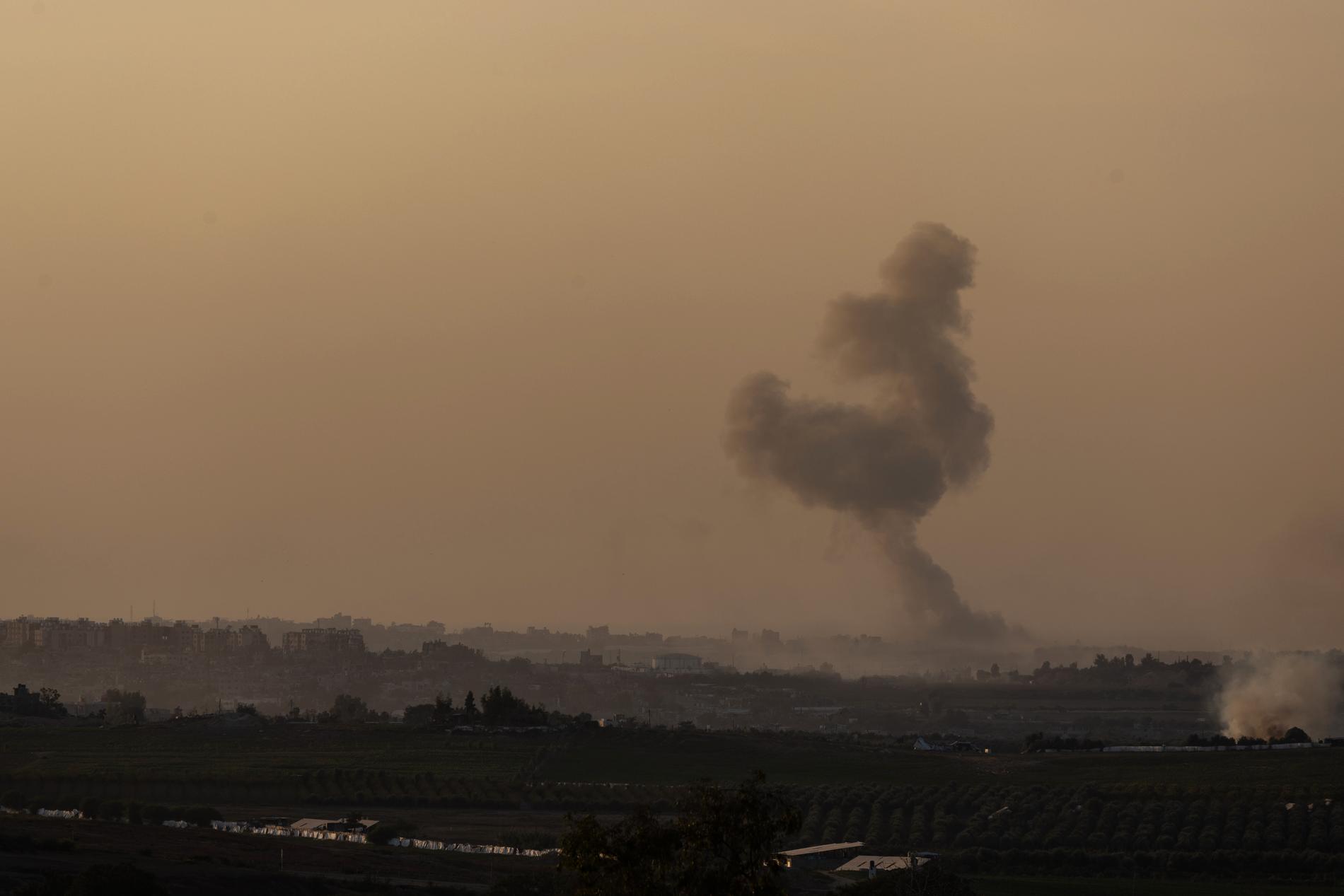
It is in the interest of all of us that the noise and distance in the arena of opinion does not become greater than it is now.
Marty Hian-Engdahl, Assistant Director of the Norev Center for International Conflict Resolution
If you imagine the Norwegian public debate on Israel and Palestine as a square, there are two groups in each corner, equipped with megaphones, banners, slogans and effects that make noise, hurt, offend and intimidate.
It is difficult to think of a similar breakdown in public dialogue about the political and humanitarian drama unfolding in the Middle East than we are witnessing now.
The abyss reveals itself.
In the United States, Great Britain and France, conditions are even worse. Demonstrations are banned, large crowds are vilified as hate, and people are harassed and canceled for low-top shoes — in both camps.
It is in the interest of all of us that the distance and noise in the square do not increase.
Editors, politicians, debaters, and keyboard warriors alike can contribute. The alternative can be very dangerous.
Revenge is often cited as the dominant driving force behind the overwhelming Israeli military operation taking place in the Gaza Strip since October 7.
But the prevailing feeling in Israel may be sadness and pain.
This wound is open and bleeding. With every new story revealed, every body identified, and every family fate passed on, the wound grows bigger. Not far from sadness lies anger and fear.
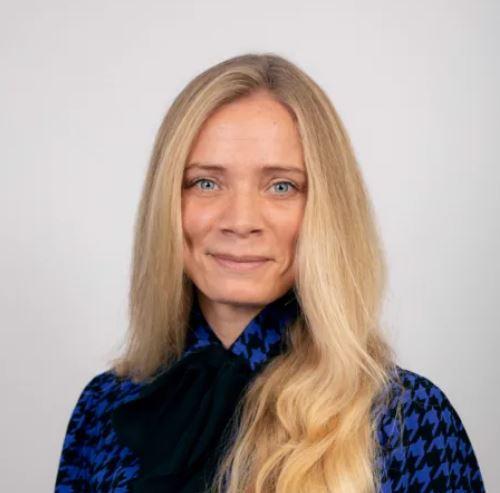
This fear has long historical lines, longer than the existence of the Jewish state, and far beyond the borders of the Jewish state.
It has its origins here in Europe, and also in Norway, and therefore also resonates with and belongs to Norwegian Jews. For those who usually have a close connection to Israel, and those who have little or no degree.
The days since October 7 have been marked by increased vulnerability, increased insecurity and historic fear that we must all take seriously.
The grief and anger simmering in Israel is also being used for something other than processing trauma in the Israeli Jewish community.
It plays a central role in legitimizing the Israeli war and human suffering in the Gaza Strip. It faces criticism at home, but most of all it targets an international audience.
A well-oiled machine pumping out horrific stories. For those who wish to expose themselves to them, there are worse impressions than ever before.
The Israeli authorities cannot of course be blamed for the fact that there is a lot of horror to be removed, but as recipients, it is important to remind ourselves that there is awareness behind how this is used.
This struggle has always been a scene of brawling over truth, but now algorithms and the power of military force are more closely interconnected than ever before.
It has to do with the formula, and it has to do with the course of the war.
Because Israeli society has been violated and affected in such a heinous way, all Israeli actions are defended as legitimate.
Because Hamas did what it did, there are no limits to what Israel can and must do, at any cost. To say that the price to be paid in the long term is the lives of civilians, including thousands of children, is something that official Israeli discourse dismisses as unimportant.
Hamas’ terrorism was of a merciless kind.
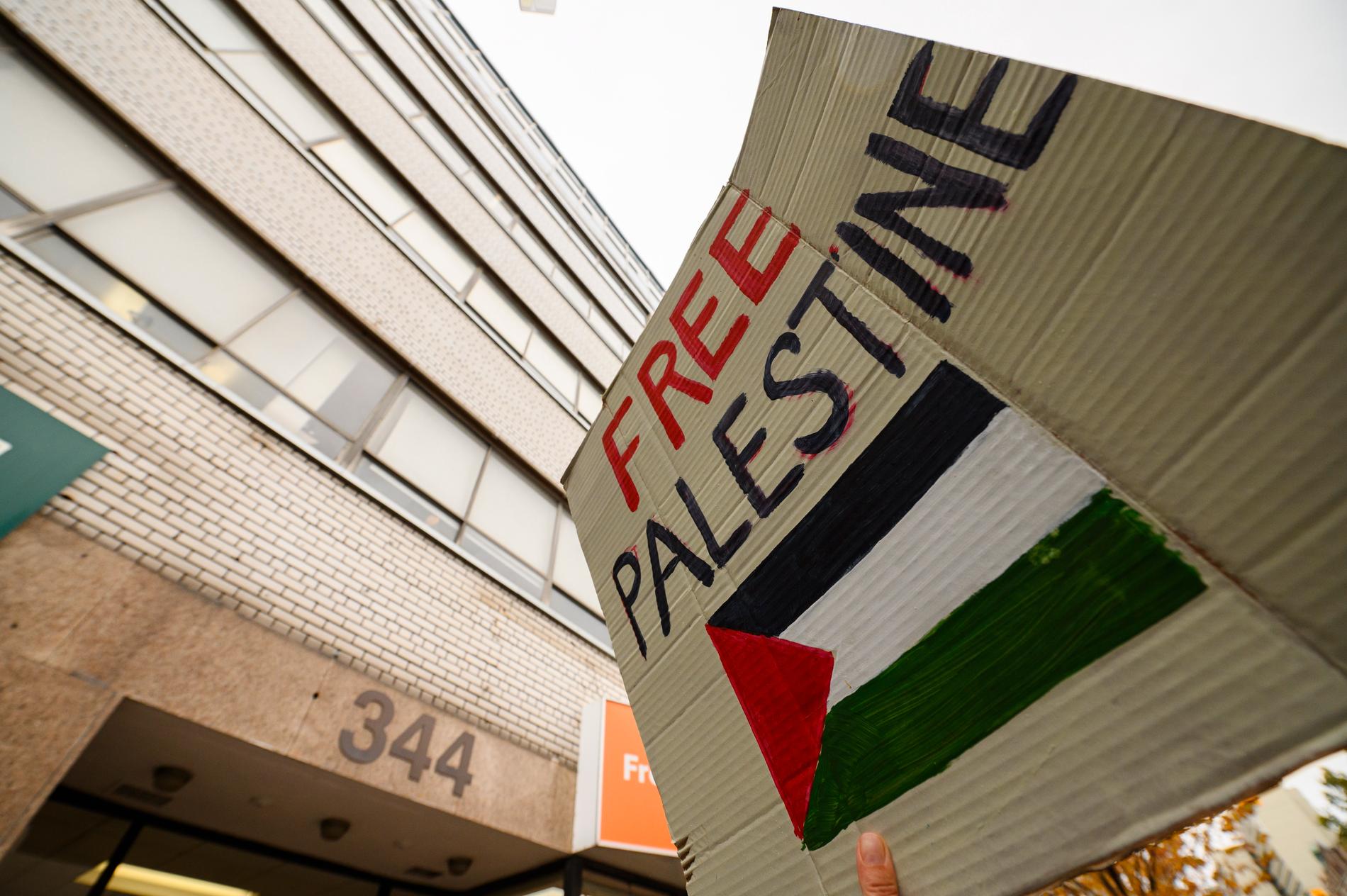
There is incomprehensible suffering and deaths in the Gaza Strip, but this fact is also in doubt. The dead are not only taken from life, but they carry with them the burden of proof until death.
When there is no doubt, it is worthy.
Literally broken civilians, the Palestinians themselves are responsible for their death. They could have chosen a different political leadership (in fact they could not), and they should have fled (in fact they could not).
On the other side of the arena there is another truth. Here too the algorithms have enhanced power.
Anger increases the longer the war lasts.
Frustration is mounting as calls for a ceasefire are mocked as naive and Hamas-loving, and rejected as hatred for Israel and a threat to Israel’s existence.
From this accusation, it is also a short way to accuse those holding these views of wishing everything bad for the State of Israel, the worst description of all; This person is anti-Semitic.
There is anti-Semitism among the pro-Palestinian ranks in our arena, here too. There are forces that believe the State of Israel is inherently racist, there are forces that believe the state has become a modern apartheid regime, and those who would rather see the entire state disappear.
To claim otherwise is unwise, and perhaps dangerous.
It is also assumed to be very harmful to the Palestinian solidarity struggle.
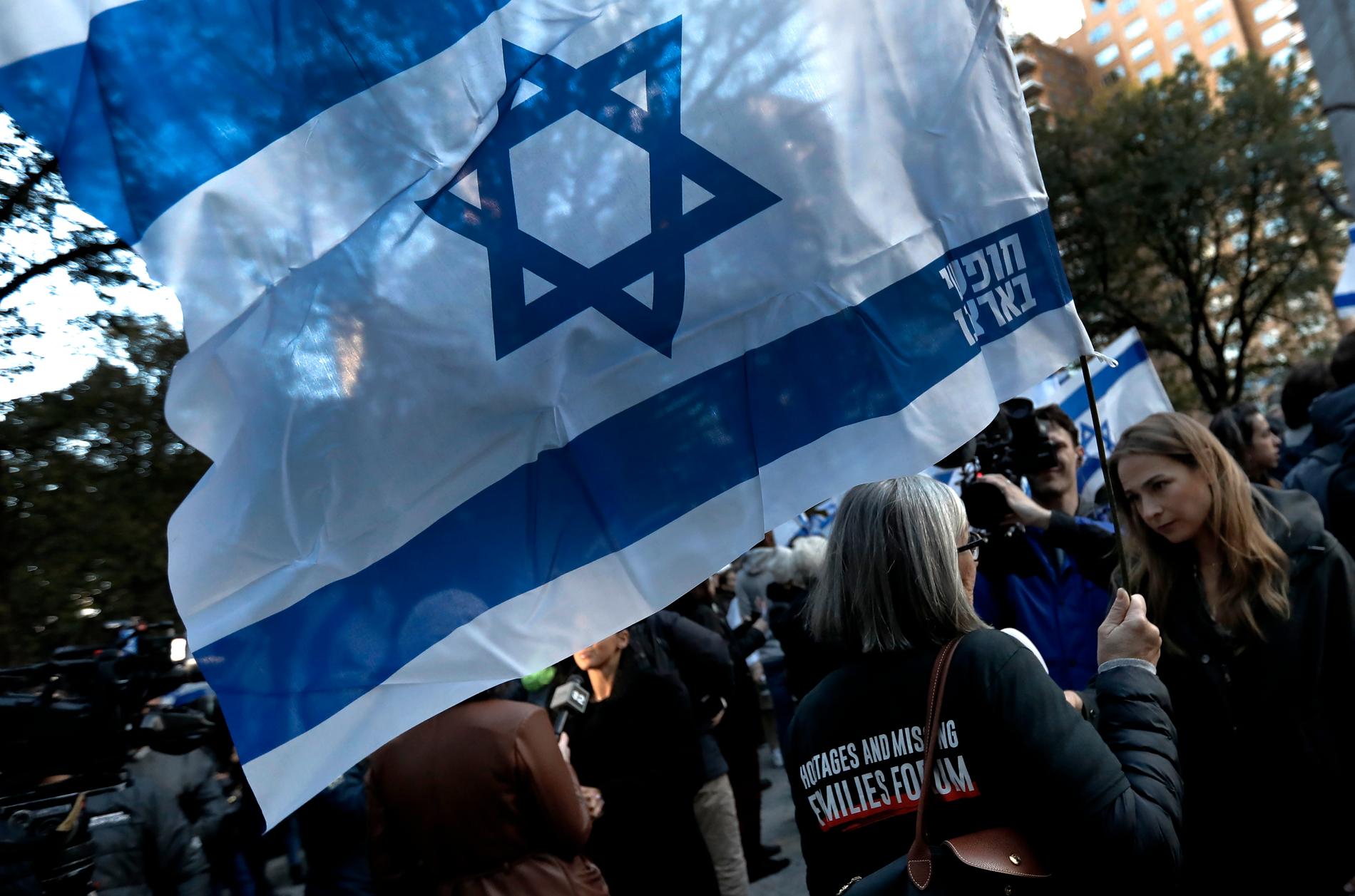
However, it is also unwise to try to hurl the same bitter accusation at everyone who is now demonstrating for a ceasefire, an end to the occupation, and a free Palestine.
Because fear and collective historical trauma are not limited to the vulnerable Jewish minority. Many of us Norwegians have roots, family and history closer to the heart of the conflict.
For those who grew up with stories of war, flight, and oppression as something more tangible than history book chapters and social studies curricular objectives, this increasingly narrow space in our arena can seem claustrophobic.
You gasp for air, but are told you can only breathe through a tight straw.
When Norwegian Jews feel sadness and fear about the October 7 attack in Israel more or less palpably than other Norwegians, in the same way in other minority communities, there are strong historical roots that fuel the sadness and vulnerability, not least fear of where this will end.
As a society, we must also take this seriously.
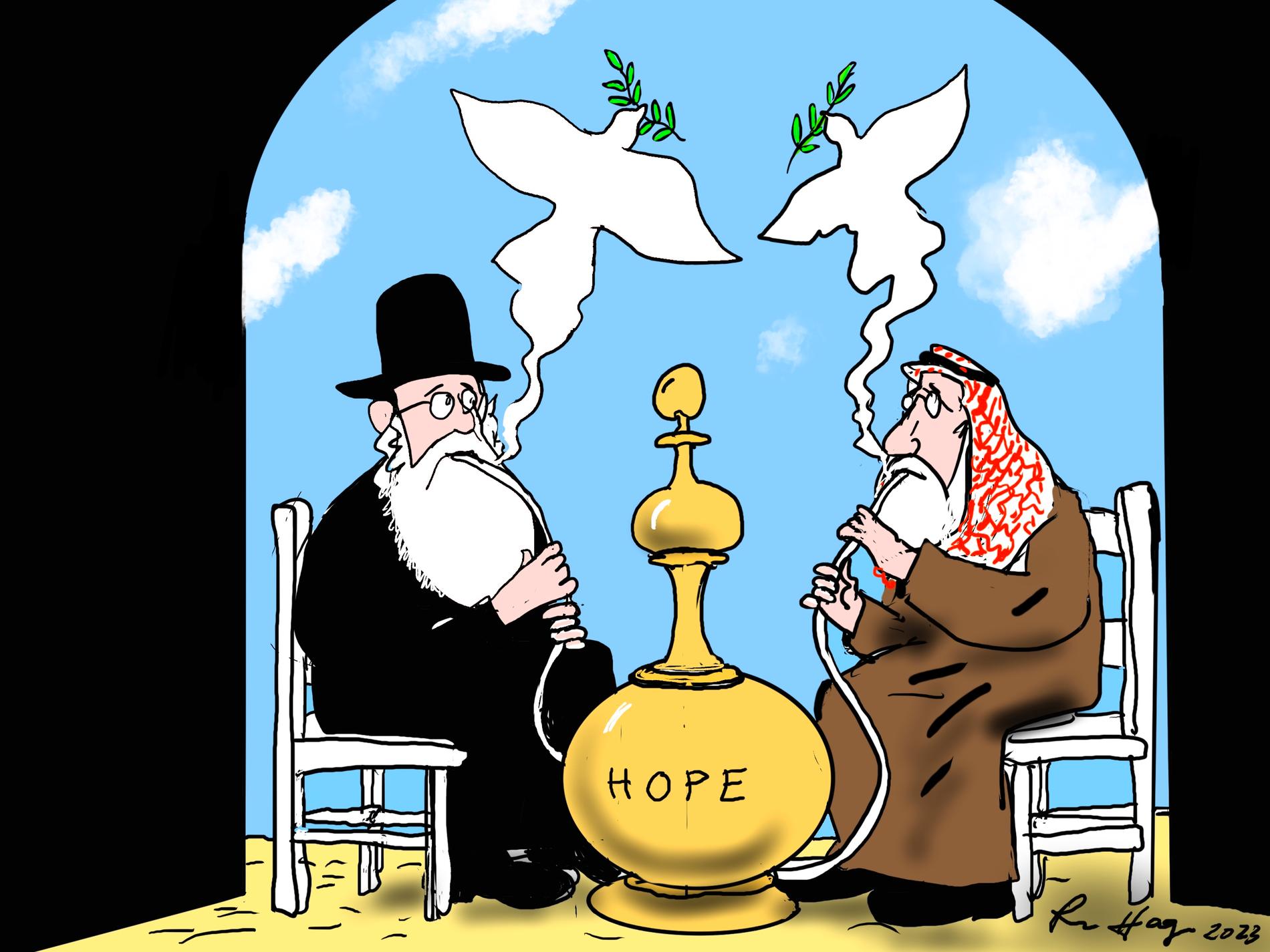
Read also
Facts: A little silence and contemplation
Perhaps a little thought is in order, for both Israelis and Palestinians?
So how can we do this? In any case, we have to start by acknowledging that although this is an emotionally charged discussion and an emotionally dark time, sadness and fear – not hate – are in fact the most important driving forces.
Knowledge of history – our history, the history of others, and our new history – must form the core of our common arena of opinion.
It is every person’s responsibility to stop ascribing a series of opinions to others that they may not have, to look for errors and shortcomings in other people’s sighs and sayings, and to start becoming more curious about the root cause of the other person’s sadness. And the other person’s fear.
The goal is not smooth discussion and complete consensus, but to be able to have a proper conversation about what is going on and what the actions entail.
For all those directly affected – but also for us in our community, and in our arena.

“Organizer. Social media geek. General communicator. Bacon scholar. Proud pop culture trailblazer.”
